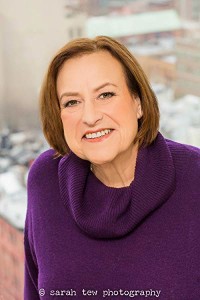
by Yona Zeldis McDonough
The Meaning and Value of Humor: An Interview with Marilyn Simon Rothstein
In Lift and Separate and Husbands and Other Sharp Objects (both from Lake Union Publishing) humor is the lens through all of life’s mishegas is viewed. Fiction Editor Yona Zeldis McDonough asks author Marilyn Simon Rothstein what it means to be funny, and why it’s more essential now than ever.
 YZM: Have you always been considered funny?
YZM: Have you always been considered funny?
MSR: When I was growing up in Flushing, New York, a terrible name for a wonderful community where there were two ethnic groups—Orthodox Jews and Conservative Jews—my family sat around a wrought iron kitchen table and discussed one important topic—other people. Being funny was the way to get everyone’s attention.
YZM: Do you think that Jewish humor, and in particular Jewish women’s humor, is its own category?
MSR: All humor is based on observation. So, Jewish humor is based on what a member of the Jewish community observes. I feel that my first book, Lift And Separate, is very Jewish.
After all, an entire chapter takes place in a Chinese restaurant. My humor is based on my upbringing as a second generation American Jewish girl –even if what I am describing could happen to anyone. When I come up with something funny, I hone it. Here’s a story from Lift And Separate. “I wasn’t feeling well so I came home early middle of a school day, from my office. I walked into my family room and found my fourteen-year-old daughter with a boy. They were on the couch in the front of the fireplace, wearing matching outfits—they both had nothing on. His name was Mother’s Hell.
YZM: Do you think women’s humor has changed over the years: is it less self-deprecating?
MSR: I do not think we are less self-deprecating. Self-deprecation is key to Jewish humor. I love to make fun of myself—and there is so much to work with.
YZM: How about the funny/pretty split? Can a woman be considered both?
MSR: Yes! Look at me. I am funny and I am absolutely gorgeous.
YZM: Why do we need humor, and women’s humor, more than ever right now?
MSR: We need it as much as ever. To me, humor is survival. Humor gets us through the tough times. My protagonist, Marcy Hammer is a Jewish woman who lives in Connecticut and is married to Harvey the Bra King. Harvey leaves Marcy after thirty-three years of marriage for a 32DDD, a model at his brassiere empire. In Husbands And Other Sharp Objects, Marcy must plan her daughter’s wedding while navigating the demise of her own marriage. Who wouldn’t need humor to get through that?
The views and opinions expressed in this article are the author’s own and do not necessarily reflect those of Lilith Magazine.
